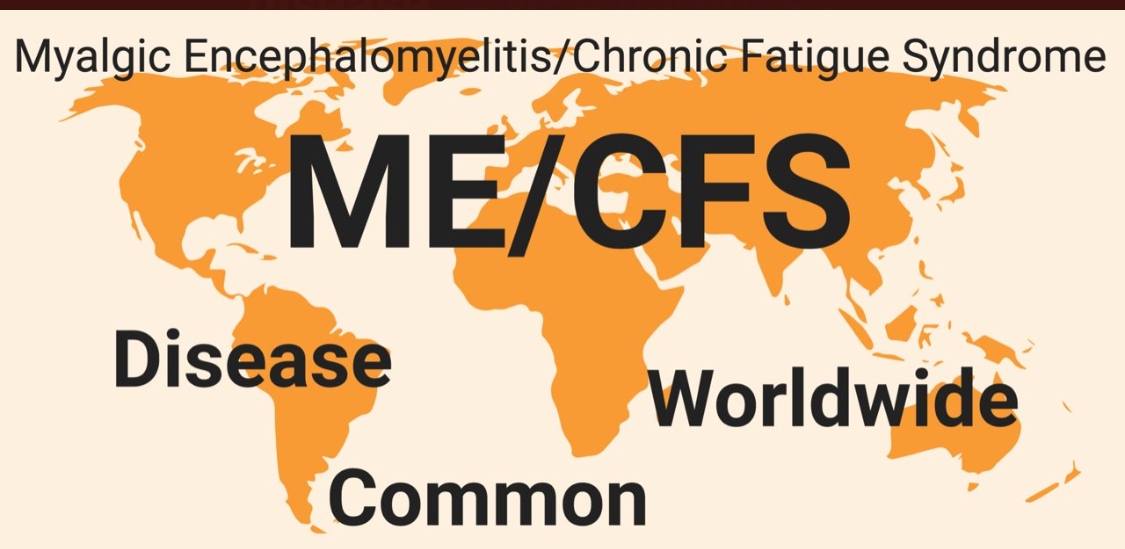Share
Worldwide fatigue is the most common symptom that is presented to a health practitioner. There are different levels of fatigue that are given many different labels. The precise cause of fatigue in any one individual is rarely able to be determined therefore the terms used are often interchangeable.
Fatigue is a symptom, not a condition.
Symptoms can be grouped into three categories.
Acute fatigue
Persistent fatigue
Chronic fatigue syndrome /Myalgic Encephalomyelitis. ME/CFS or M.E.
Acute fatigue – Persistent fatigue
Fatigue can be associated with many conditions and there can be multiple contributing factors.
The experience of fatigue is very common in rheumatological conditions such as rheumatoid arthritis, psoriatic arthritis, and lupus.
Biological
Age and gender
Medicines
Infection
Rheumatological conditions
Thyroid or other metabolic /endocrine and hormone disorders
Cardiac and or respiratory conditions
Malignancy
Sleep disorder( organic)
Pesticides
Psychological
Anxiety
Depression
Post-traumatic stress disorder
Sleep disorder (non-organic)
Adverse psychosocial circumstances
Social
Family and relationship problems
Bereavement
Occupational stress
Unemployment
Lifestyle
Drug and alcohol abuse
Sleep deprivation
Overwork
Sedentary lifestyle
Inappropriate diet
Chronic stress
In coming to a diagnosis it is important that a thorough evaluation is undertaken to identify and exclude treatable conditions that cause fatigue.
Chronic Fatigue Syndrome (ME/CFS/)

- This complex multi-system disorder known as myalgic encephalomyelitis or chronic fatigue syndrome (ME/CFS) is a diagnosis of exclusion of other diseases. There is as yet no gold standard method to diagnose ME/CFS to date. However, research generated by Long COVID will hopefully change this situation.
- Clinically the illness is characterised by severe and disabling new-onset fatigue with at least four additional symptoms: P ost-exertion fatigue, impaired memory or concentration, sore throat, tender cervical or axillary lymph nodes, muscle pain, multi-joint pain, new headaches and unrefreshing sleep.
- Up until recently, a psychologically-based model was widely held to be the basis for the aetiology of fatigue-associated syndromes. This belief is not substantiated by medical research! ME/CSF is not a mental health disorder. It is due to biological disruptions and imbalances. The cause of ME/CFS is not known. It is thought to be multifactorial, resulting from the dysregulation of multiple systems in response to a particular trigger. These systems include the autonomic nervous system, hypothalamic-pituitary-adrenocortical (HPA) axis, and immune systems. Dysregulation in these systems has been associated with metabolic and mitochondrial dysfunction and abnormal gut microbiota.
- The three systems communicate using electrical and chemical signals to control all functions of the body and emotions. These three systems are coordinated to preserve balance ie. homeostasis. It is proposed that this disorder is caused by a breakdown of homeostasis. This Homeostasis Theory of ME/CFS is supported by a substantial number of studies in the recent literature.
-
Neuroimaging studies show inconsistent but widespread abnormalities in white matter, functional connectivity, and morphological changes of the autonomic nervous system.
- There is no cure as yet for ME/CFS nor any approved medications to treat it, therefore the focus tends to be on managing and minimizing the symptoms and improving quality of life.
- The few trials that have been conducted have shown some evidence for the effectiveness of different complementary therapies, cognitive-behavioral therapy (CBT), counseling and behavioral therapies, and graded exercise therapy for improvement of fatigue, physical functioning, sleep, and quality of life in patients with ME/CFS.
- The science behind how mind-body interventions (MBI)therapies work is expanding. It has been shown that the brain and body communicate in multiple directions using neurotransmitters/neuropeptides, hormones, and cytokines and MBIs may be influencing physical health by affecting these interactions. Mind-body approaches utilize the interactions between the brain, mind, and body, and behavior to improve health and wellbeing. Examples of mind-body therapy interventions (MBIs) include progressive muscle relaxation, guided imagery, hypnosis, meditation, mindfulness, Tai chi, qi gong, yoga, and biofeedback. In research studies when compared to a control group, fatigue severity, mental functioning and anxiety/depression improved in patients receiving MBIs.
- An approach called neuroplasticity is purposely using the brain’s ability to change by repeated, purposeful thoughts, feelings, or behaviours.
- As a result of COVID 19 there is an increased research effort to find the missing answers and viable treatments.
- Finally, ME/CFS is not just ME/CFS. It is associated with other illnesses that co-occur with it such as fibromyalgia, POTS, tick-borne diseases such as post-treatment Lyme disease, multiple chemical sensitivity, migraine, functional neurological disorder, hypermobility Ehlers Danlos Syndrome (hEDS etc. These complex conditions have not been studied as a group. There is much to do and to learn.
See the article
Myalgic Encephalomyelitis/ Chronic Fatigue Syndrome ( ME/CSF)
Read more articles here :
- Understanding chronic fatigue syndrome/ myalgic encephalomyelitis -2022
- Update on the science of ME/CSF – 2021
- A Comprehensive Update of the Current Understanding of Chronic Fatigue Syndrome -a technical article. 2021
- “When skeptical physicians tell patients with ME/CFS that ‘there is nothing wrong,’ they not only commit a diagnostic error: They also compound the patients’ suffering.”
- What are mitochondria and why use ubiquinol plus other supplements to boost energy
- What people with ME/CFS wish others understood
- Principles of management to improve the quality of life.
- Fatigue – simple steps to gain more energy
- Fatigue and structural brain changes in Post-COVID Syndrome ( Long COVID)

